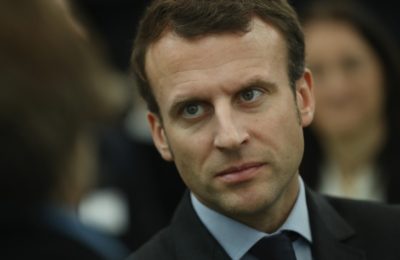
David Worsfold reports.
French president Emmanuel Macron has given a major boost to the European Union’s drive to make sustainable finance a core element of all institutional investment strategies, and has thrown his considerable political weight behind the prospect of changes to Solvency II.
He was speaking on 22nd March at a conference to discuss the final report of the European Union High-Level Expert Group on Sustainable Finance. This group, chaired by Axa’s Christian Thimann, has had plenty to say about how insurers and other financial institutions must do more to embrace Environmental, Social and Governance (ESG) strategies. As forecast on this website earlier this year, the emphasis in its final report is firmly on the ‘E’ with a range of initiatives to promote this. In the wake of the conference, the European Commission has bowed to political pressure to review capital requirements for sustainable investment for banks and insurance companies.
President Macron’s speech had an electrifying impact on the conference in Brussels. He urged the EU Commission, members states and financial institutions to back the strategy, drawing a rare standing ovation from the normally reserved audience of top officials and senior figures from the financial services sector.
His criticisms of the US administration were especially well-received with a forceful appeal to use trade policy to promote, rather than undermine, green energy. President Macron said that since President Trump had said the US would withdraw from the Paris climate change accord, any new trade deal with the US would risk undermining clean energy producers in Europe.
“Trade agreements should be … a way of spreading our standards. Anyone who signs an agreement with the EU should be committing to put the Paris Agreement into practice.
“We should even go beyond our own rules and ask our own economic agents to do the same. Why should we sign a trade agreement with powers that say they don’t want to implement the Paris Agreement? We would be mad [to do so].”
“I’m not in favour of showing any softness to those who decide to break those rules,” he said. “We can no longer pursue objectives that work against our own [climate] policies inside our own borders.”
Doing so would “discourage” Europe’s clean energy investors who might suffer from unfair competition as a result, said President Macron.
He said the EU itself must take a lead by committing more of its central budget to combatting climate change.
The conference heard about the EU’s own plans to raise more capital for green infrastructure and other sustainable projects. The funding gap to achieve EU climate and energy targets by 2030 is estimated at €180bn each year. Much of this will be raised through the private sector with new rules for green bonds promised to help bring greater clarity and uniformity to this market.
Valdis Dombrovskis, Vice-President responsible for Financial Stability, Financial Services and Capital Markets Union told the audience: “Europe is proud to be leading the global fight against climate change, just two years after the signature of the Paris Agreement. But to reach our commitments for emissions reductions, we are faced with a considerable task: we have a yearly funding gap of around €180 billion to fill. Public money alone will not be enough for this. The financial sector will have to throw its full weight behind the fight against climate change. This is a challenge, but also an exceptional opportunity.”
There will be some clear direction from the EU and regulators to drive investment to support these projects with a range of initiatives proposed by the high-level group endorsed by the conference, including:
- Establishing a common language for sustainable finance, i.e. a unified EU classification system – or taxonomy – to define what is sustainable and identify areas where sustainable investment can make the biggest impact.
- Creating EU labels for green financial products on the basis of this EU classification system: this will allow investors to easily identify investments that comply with green or low-carbon criteria.
- Clarifying the duty of asset managers and institutional investors to take sustainability into account in the investment process and enhance disclosure requirements.
- Requiring insurance and investment firms to advise clients on the basis of their preferences on sustainability.
- Enhancing transparency in corporate reporting: the Commission is proposing to revise the guidelines on non-financial information to further align them with the recommendations of the Financial Stability Board’s Task Force on Climate-related Financial Disclosures (TCFD).
The most eye-catching was the suggestion of incorporating sustainability in prudential requirements for banks and insurance companies. The Commission says it will explore the feasibility of recalibrating capital requirements for sustainable investments when it is justified from a risk perspective, while ensuring that financial stability is safeguarded. Initially this will be done for banks but if a workable policy can be agreed for them, the Commission will then start discussions with the pan-European regulator, the European Insurance and Occupational Pensions Authority (EIOPA) about adapting the Solvency II regime to prioritise investments supporting green infrastructure projects.
There is no timescale for this but with President Macron prioritising sustainable finance as part of his broader initiative to put France at the forefront of developing fresh momentum in European policy-making it has a sense of urgency about it.
